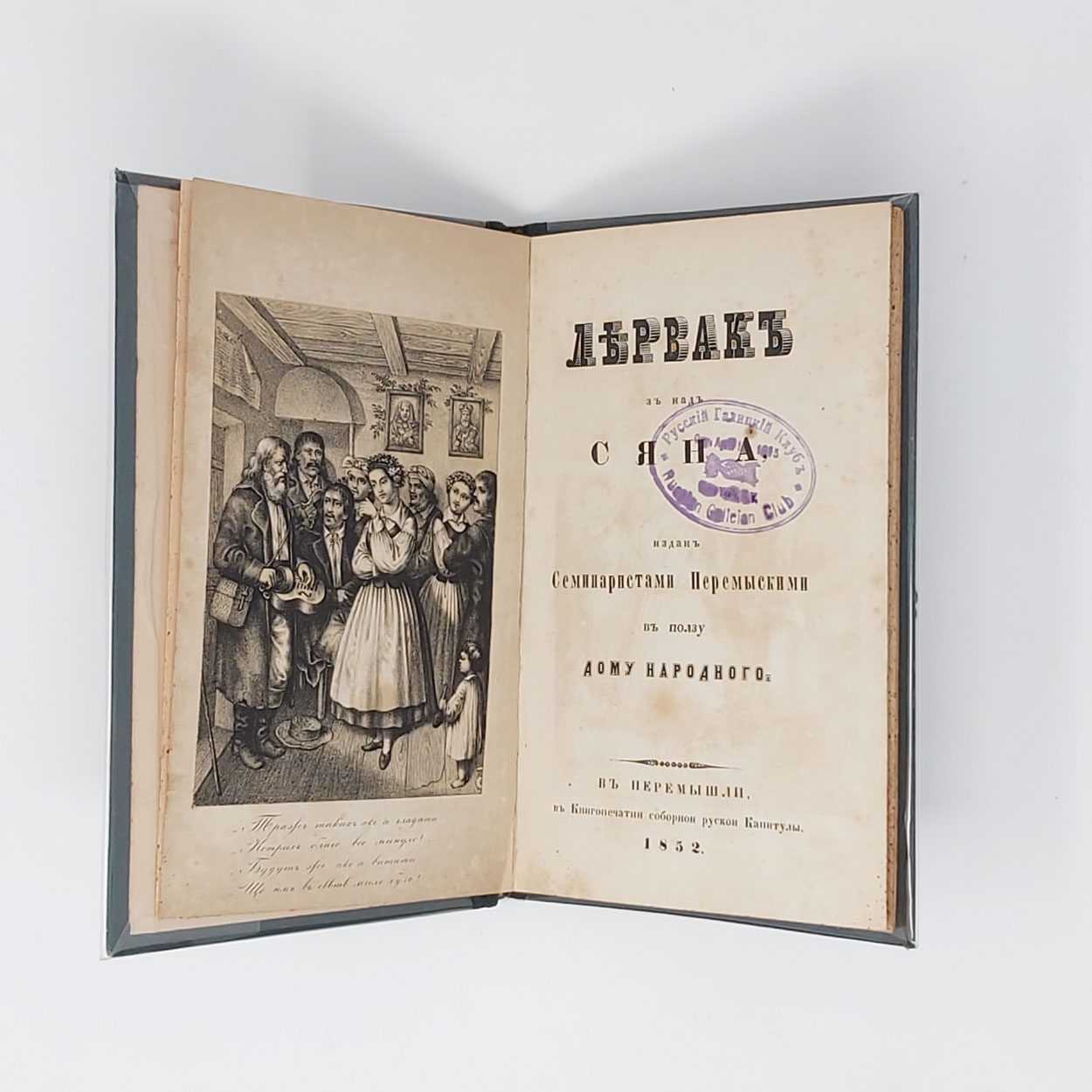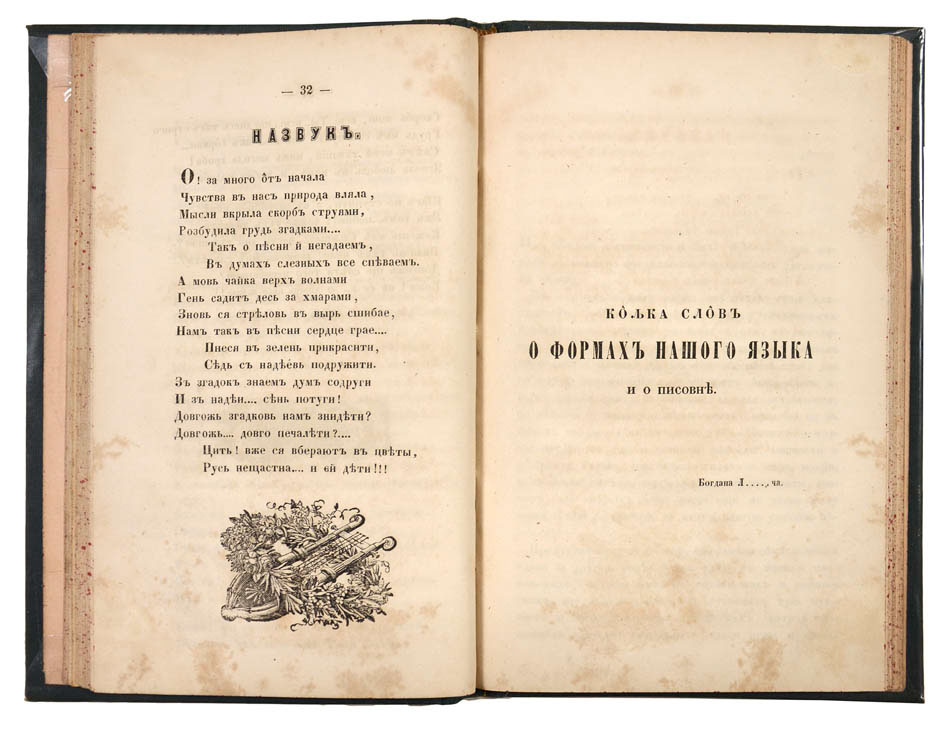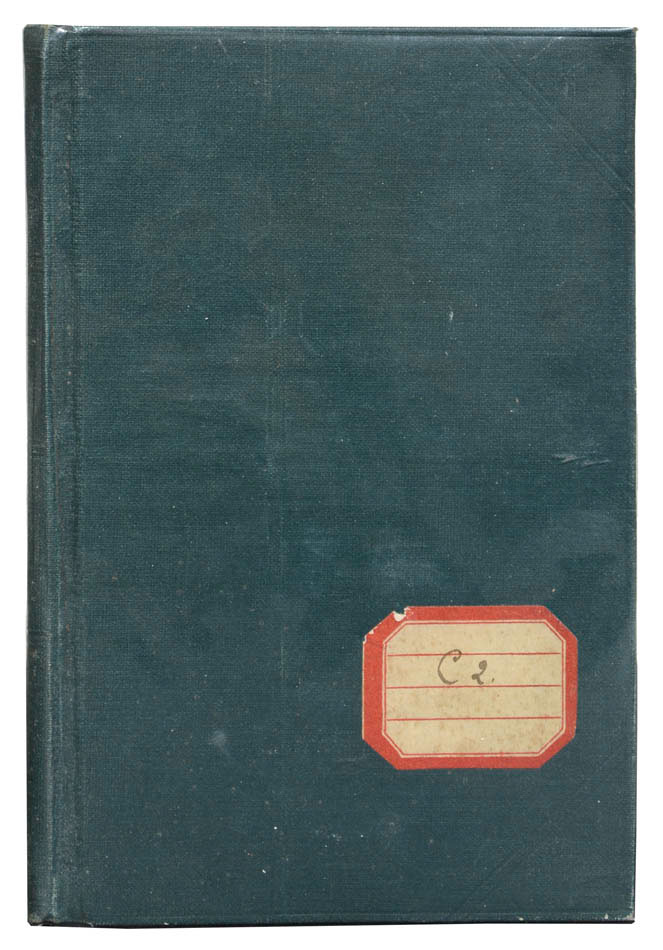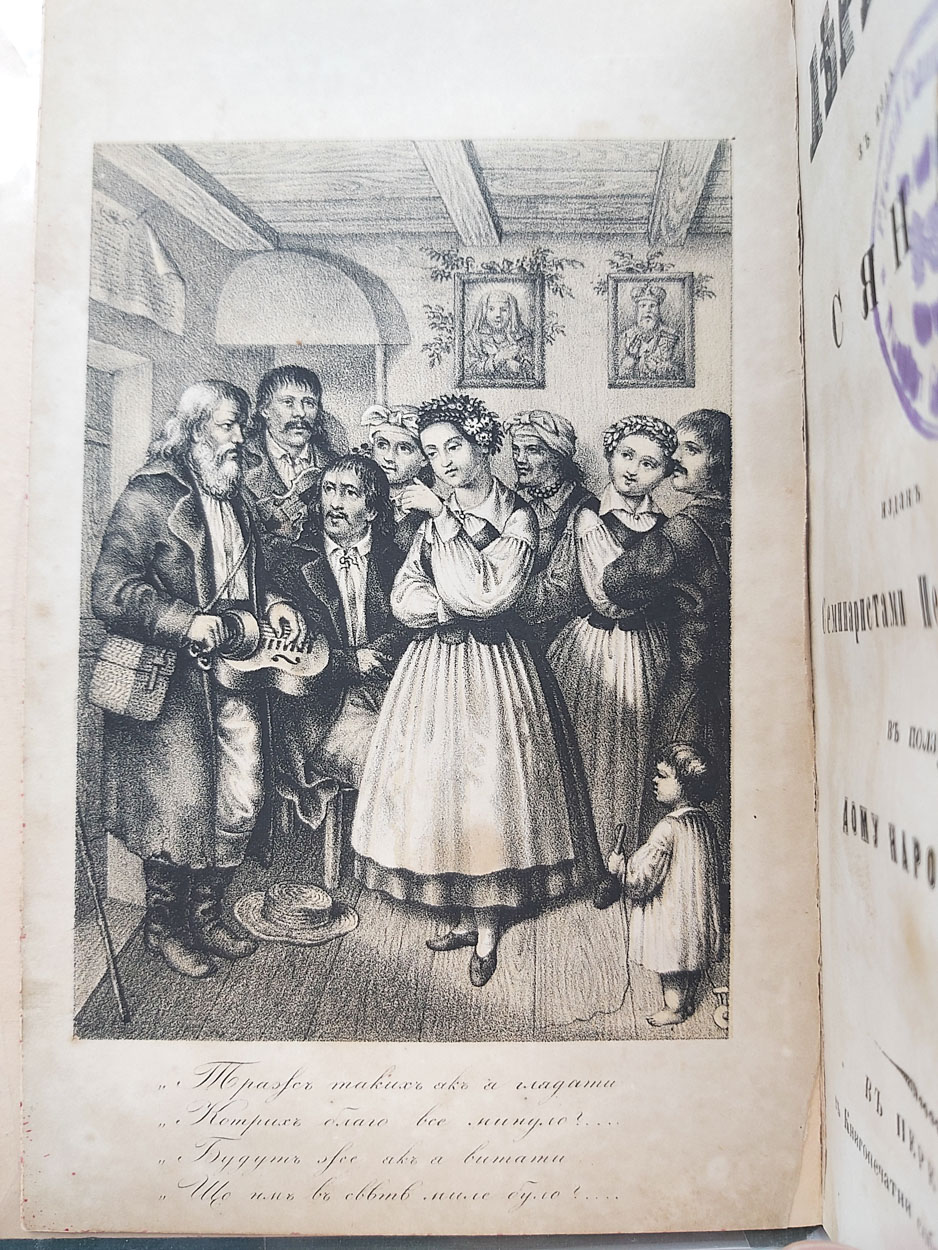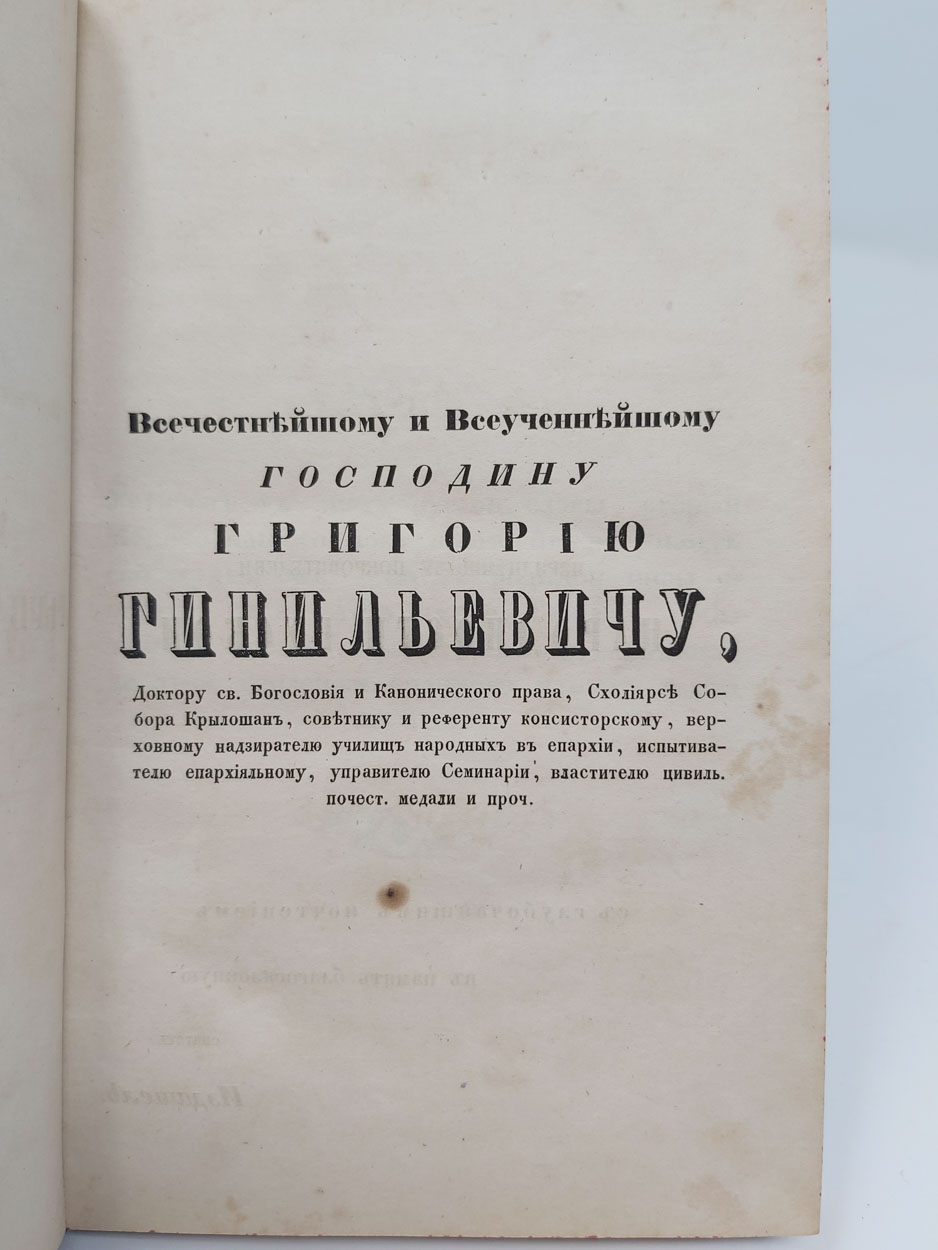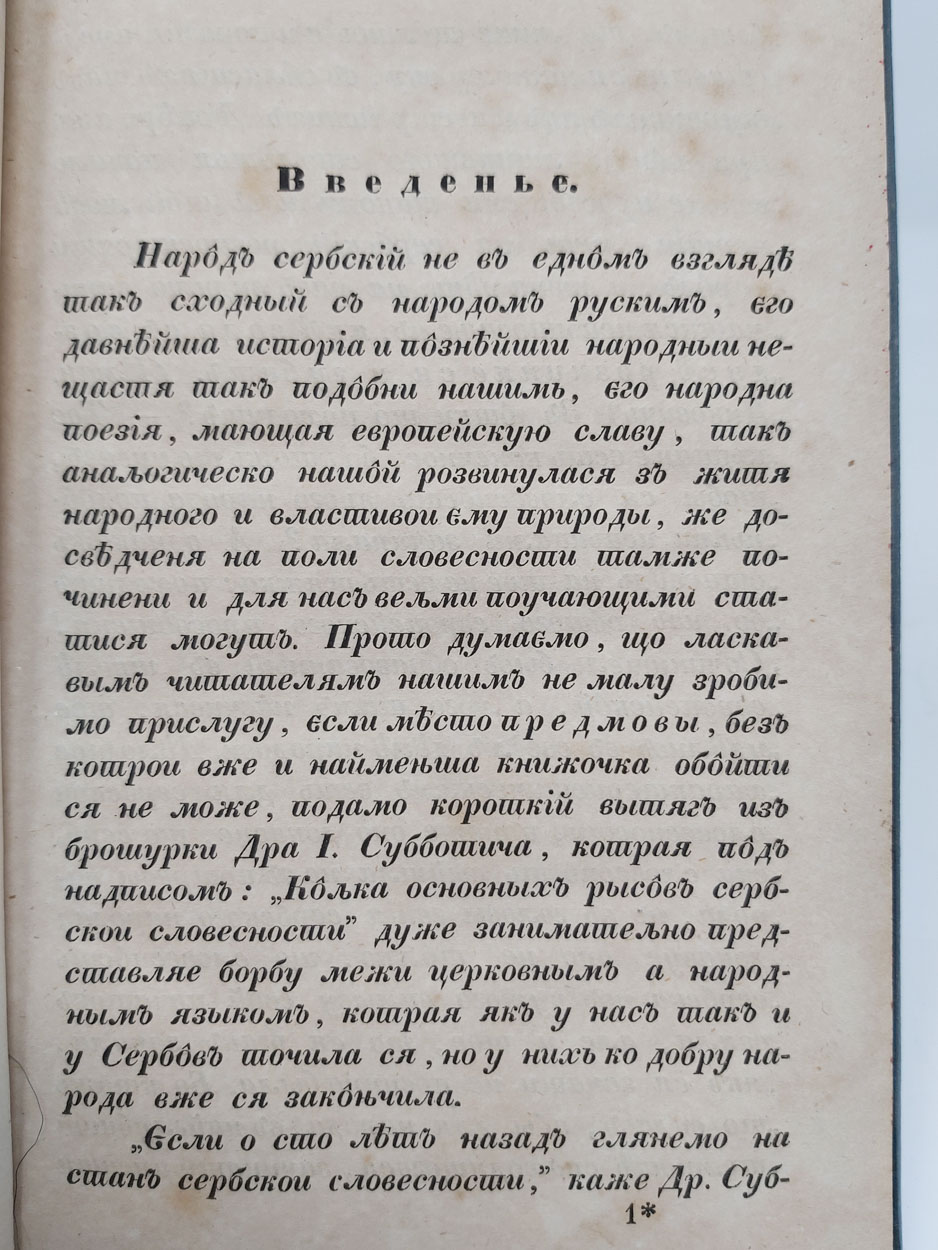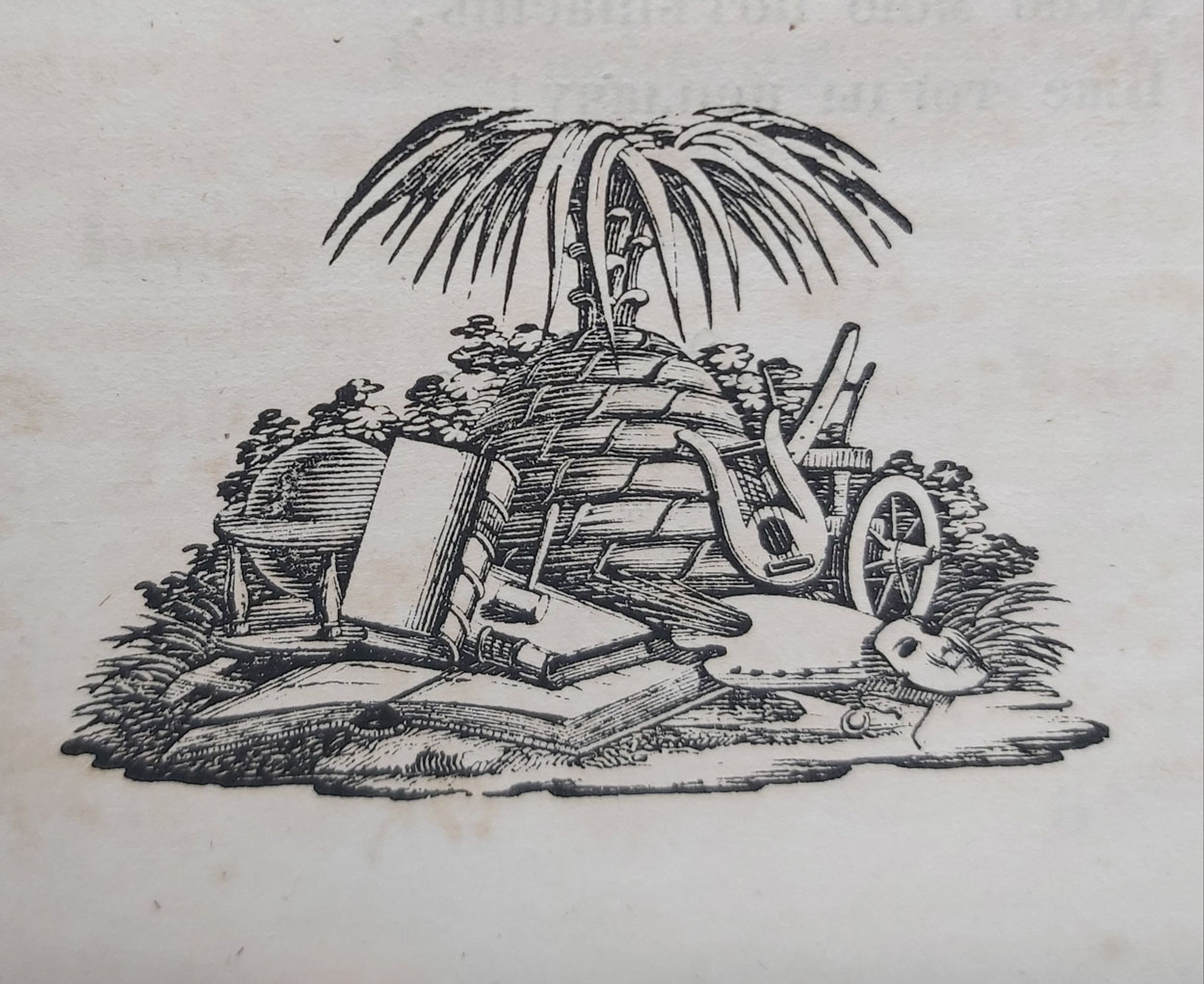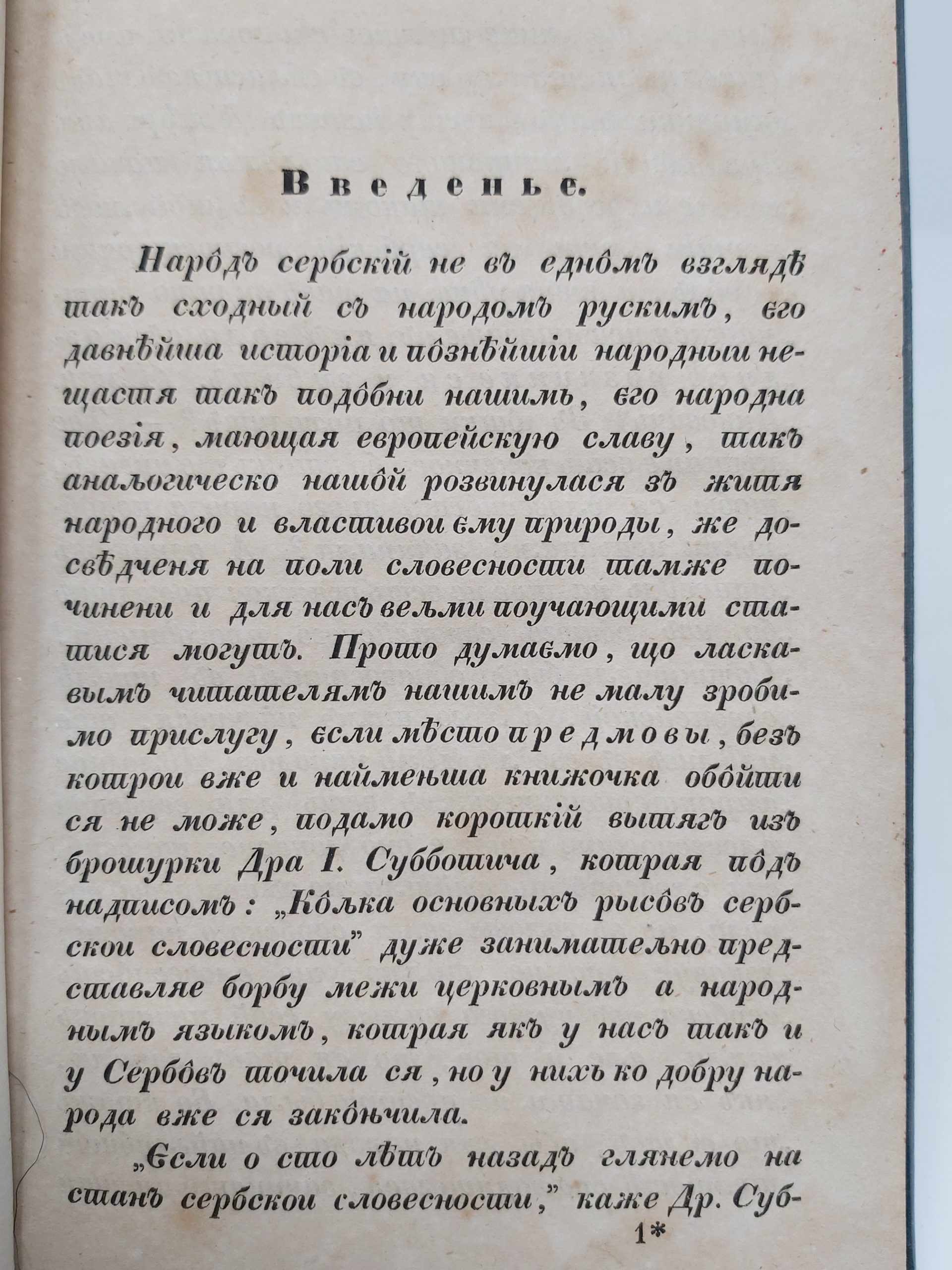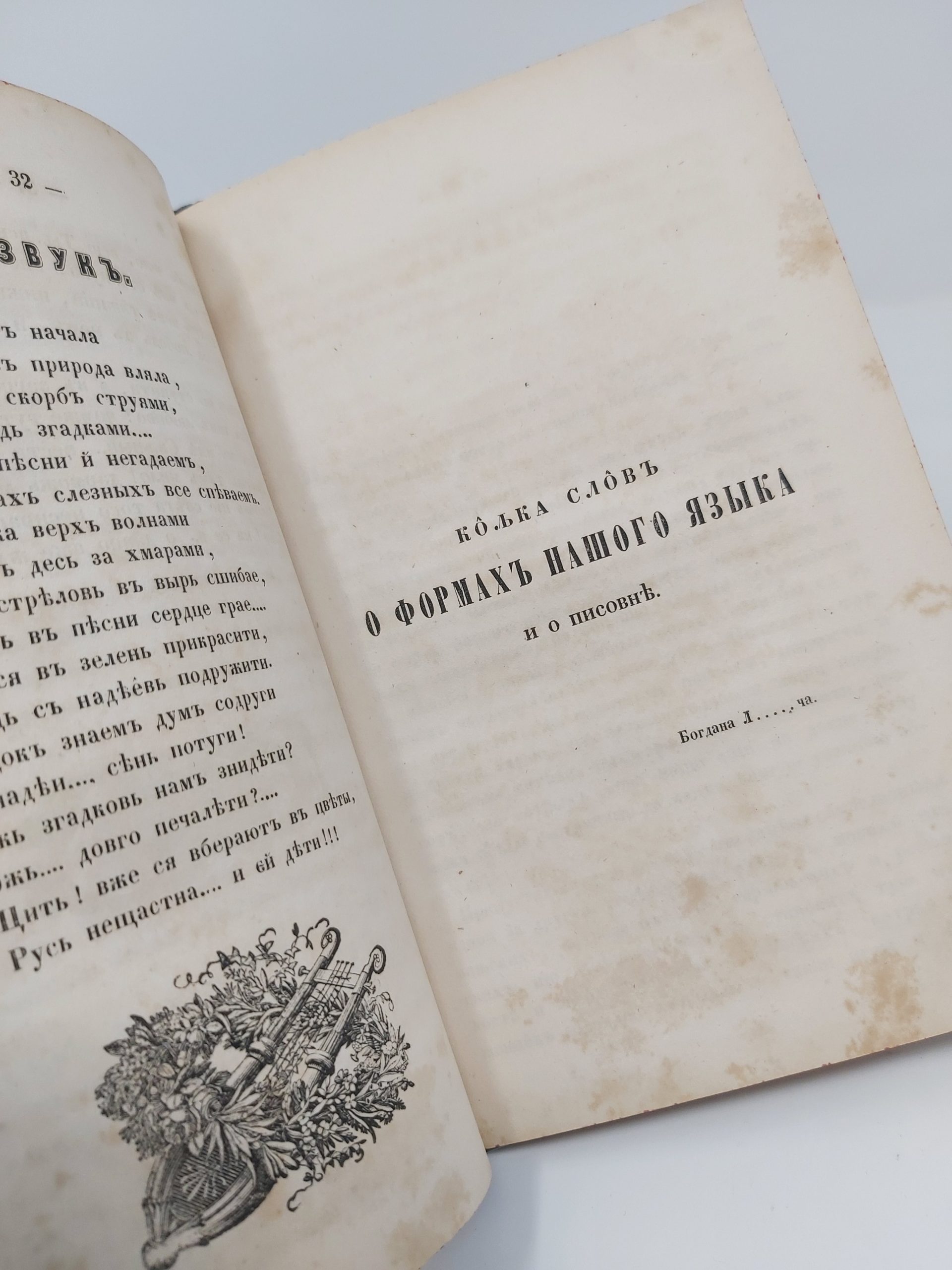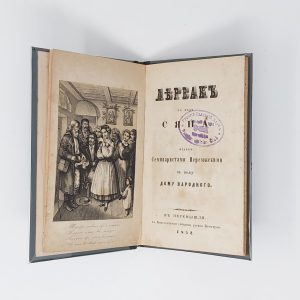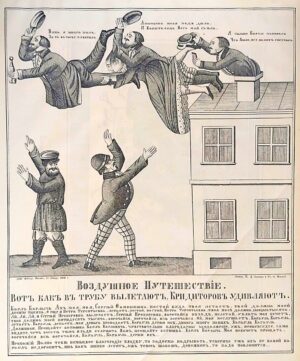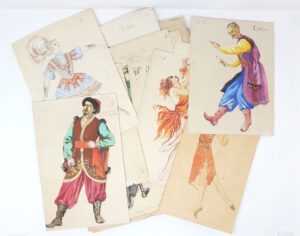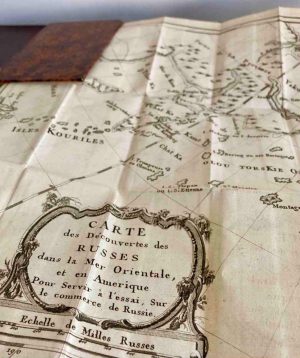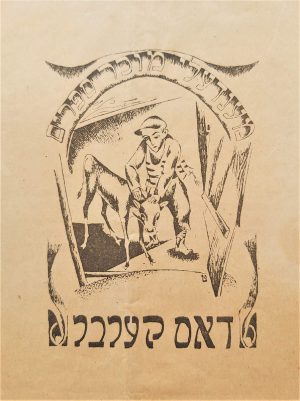Our Notes & References
A very rare literary almanac that bears witness to the early attempts of the Galician intelligentsia (in nowadays Western Ukraine) to define their national identity and develop a specific literary language.
Illustrated with a charming frontispiece and vignettes throughout; a lovely example. We could trace only two copies of this title in the Western libraries: in the Royal library in Denmark and National library of Poland.
The almanac was published with efforts of the Russophiles of Galicia at the dawn of this cultural and political movement. Being part of the wider Pan-Slavism that was developing in the late 19th century, it emphasised that since the Eastern Slavic people of Galicia were descendants of the people of Kiev Rus’, and followers of Eastern Christianity, they were thus a branch of the Russian people. Russophilia was largely a reaction against Polish (in Galicia) and Hungarian (in Carpathian Ruthenia) cultural suppression that was largely associated with Roman Catholicism.
After the Partition of Poland in 1772, Galicia became part of Austria. By that time the Russian nobility, higher clergy and merchants were polonised and a local language was only used by peasantry and craftsmen in domestic life. The Austrian rulers Maria Theresa and Josef II brought some positive changes when, in the region with no higher education institutions, they founded a theological seminary and University in Lvov. A certain number of places were also reserved for Galician students at the Vienna Theological seminary.
With access to education and on the general wave of Pan-Slavism secret societies started to form in Lvov propagating national culture and literature. In 1836 a circle of Markian Shashkevich published an almanac “Rusalka Dnestrovaia”, which was the first to use Ukrainian phonetic writing and an adapted alphabet. Despite its innocent content the almanac was confiscated and the members of the circle jailed.
The 1848 revolution in the Austrian Empire gave Galicia more freedom and abolition of serfdom. The same year the first Galician newspaper in Russian started to be published. With restrictions on freedom of expression suddenly weakened, the Galician cultural activists were put in a difficult position. Having been communicating in Polish most of their life, they struggled with the Russian literary language; meanwhile the local dialect was not developed enough in order to express complex ideas.
This almanac with poems, stories and articles written by local authors represent an attempt to develop own unified literary language, which they saw as a basis for national identity: “Darkness of the sky of our literature can only be brightened by two stars: publication of a Ukrainian dictionary and a collection of folk songs. But woe to us if these two stars will never rise.” (Introduction)
From the today’s perspective the language used in the almanac is a unique mix of modern Russian, Ukrainian and Polish, making this publication extremely important both from philological and historical points of view.
Provenance
Russian Galician Club, New York (stamps on title and several pages dated 1915).
Physical Description
Octavo (18.9 x 13 cm). Frontispiece, title, half-title, [4], X, 110 pp.
Binding
Contemporary green cloth, paper label pasted on upper cover.
Condition
In fine condition beside minor rubbing and spotting.

